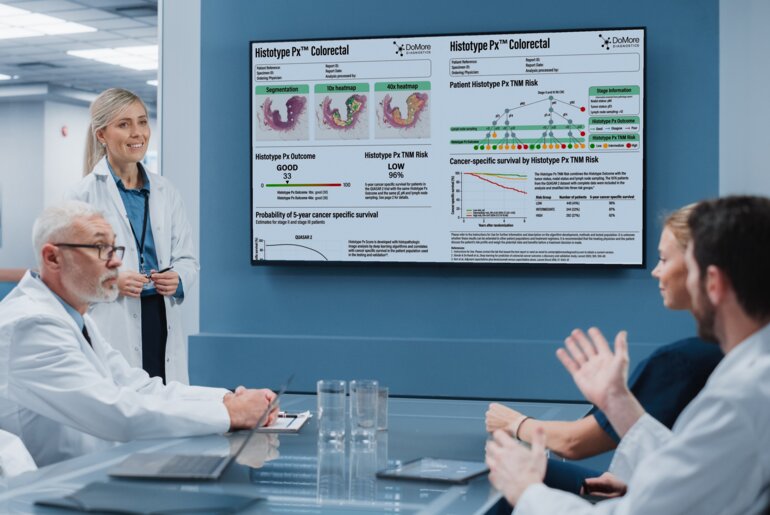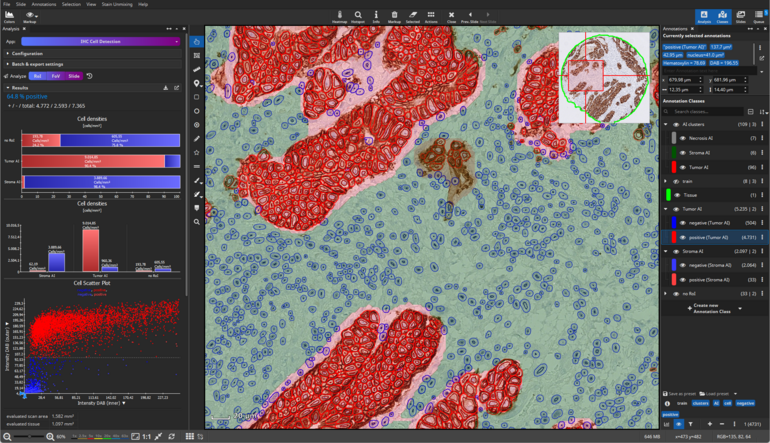
International collaboration and a shared vision are key to improving cancer patients’ lives
The 2025 ESMO Lifetime Achievement Awardee, Prof. Rolf Stahel, reflects on the role of the oncology community to drive progress in cancer care

The 2025 ESMO Lifetime Achievement Awardee, Prof. Rolf Stahel, reflects on the role of the oncology community to drive progress in cancer care

An ESMO roadmap addresses how the new challenges in oncology can be transformed into opportunities for the benefits of oncology professionals and patients with cancer

Leveraging artificial intelligence and digital pathology, oncology is entering a transformative stage where advanced image analysis and AI-driven biomarkers enable personalised cancer treatment decisions.

Pathology is going digital. More than 50 AIs cleared for diagnostic use are now available. This article summarises the status quo and gives an outlook of upcoming emerging technologies.

An interview with ESMO President Prof. Fabrice André underscores the importance for any medical oncologist of developing artificial intelligence literacy

The innovative approach was successfully tested on NY-ESO-1 and promises to bypass some current challenges in the identification of T cell receptors for therapeutic use

In a phase III trial, lower doses of adjuvant radiotherapy plus docetaxel were associated with reduced toxicity and need for percutaneous endoscopic gastrostomy, with an impact on quality of life

Data from two studies suggest a good rationale for targeting T-cell dysfunction with precision immunotherapy to intercept pre-cancerous lesions

Diverse approaches are investigated in oncology that also include the use of artificial intelligence

Presented studies explore different approaches to predict cancer cachexia and inform on the intra-tumour heterogeneity to personalise treatment
This site uses cookies. Some of these cookies are essential, while others help us improve your experience by providing insights into how the site is being used.
For more detailed information on the cookies we use, please check our Privacy Policy.
Necessary cookies enable core functionality. The website cannot function properly without these cookies, and you can only disable them by changing your browser preferences.